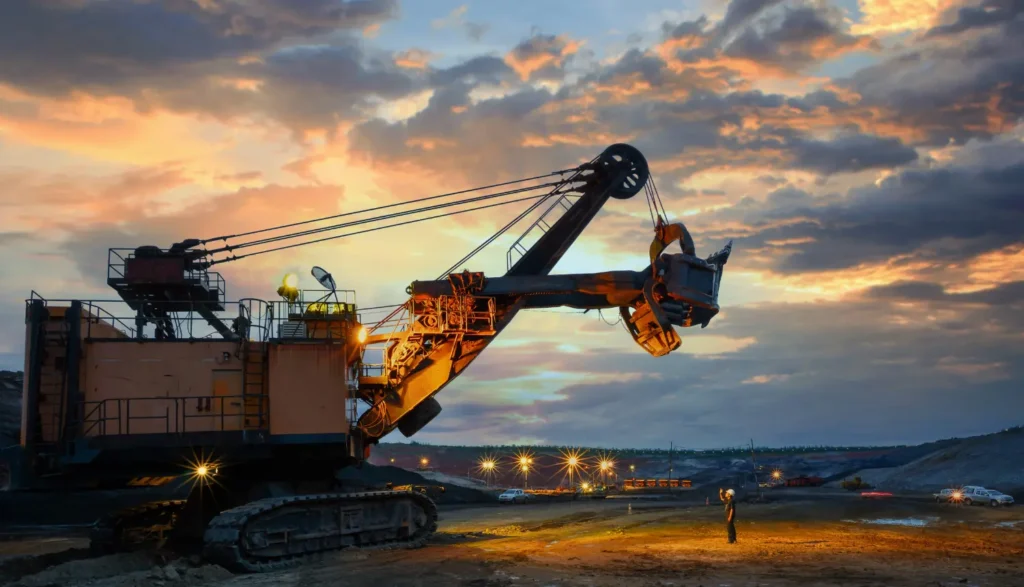Find Out What Companies Are in the Basic Industries Field?
Every thriving economy relies on industries that provide the essential materials and resources needed for growth. These industries, known as basic industries, form the foundation of global supply chains, producing raw materials that power sectors like construction, agriculture, manufacturing, and energy. Without them, modern economies would struggle to function, as they supply the fundamental components used in nearly every product and service.
Understanding what companies are in the basic industries field is crucial for investors, job seekers, and businesses looking to assess market stability and future trends. From multinational mining corporations to agricultural giants, these companies drive global commerce and shape the world’s infrastructure.
This article will explore the key players in various basic industry sectors, their impact on global markets, and the latest trends shaping their future. By the end, you’ll have a clear understanding of which companies lead the way in these critical industries.
Understanding Basic Industries
Basic industries are the foundation of global economic activity, supplying essential raw materials and resources to numerous sectors. These industries ensure the steady flow of materials necessary for manufacturing, energy production, and infrastructure development, making them indispensable to modern economies.
Definition and Scope
Basic industries include sectors that focus on the extraction, processing, and distribution of raw materials. These industries operate in:
- Agriculture – Producing essential food products, fibers, and bio-based raw materials.
- Mining – Extracting precious metals, minerals, and other geological resources.
- Energy – Generating power through fossil fuels, nuclear, and renewable sources.
- Manufacturing – Producing chemicals, steel, and construction materials for industrial use.
These industries lay the groundwork for other sectors, ensuring the availability of fundamental materials for businesses and consumers alike.
Economic Significance
Basic industries are critical to national and global economies, contributing significantly to employment, GDP, and trade. For instance, the U.S. mining sector alone employs over 600,000 workers, while agriculture sustains millions of jobs worldwide. The demand for raw materials affects global trade policies, commodity prices, and industrial growth. As such, basic industries shape economic landscapes by providing a steady supply of essential goods.
Key Sectors and What Companies Are in the Basic Industries Field
Basic industries encompass essential sectors that drive economic growth by providing raw materials, b and industrial products. These industries are dominated by major corporations that lead innovation, efficiency, and sustainability efforts. Below, we explore key sectors and the top companies shaping them.
Agriculture
Agriculture is the backbone of global food supply, supporting economies and ensuring food security. Leading agricultural firms play a crucial role in production, processing, and agricultural technology advancements.
Cargill
Cargill is one of the world’s largest privately held food corporations, operating in over 70 countries. It specializes in agricultural trading, grain processing, and food ingredients, supplying key commodities such as wheat, corn, and soybeans.
- Products & Services: Cargill provides animal nutrition, bio-industrial solutions, and risk management services to farmers and businesses.
- Sustainability Efforts: The Company invests heavily in regenerative agriculture to improve soil health and reduce carbon footprints.
- Market Influence: With over $165 billion in annual revenue, Cargill is a dominant force in the global food supply chain.
John Deere
John Deere is a leading manufacturer of agricultural machinery, offering cutting-edge farming equipment to enhance productivity.
- Machinery & Technology: The Company produces tractors, harvesters, and precision farming tools that integrate AI and automation.
- Global Presence: Operating in 160+ countries, John Deere provides farmers with innovative solutions to improve yields.
- Sustainability Initiatives: It has launched electric and autonomous tractors to promote eco-friendly farming practices.
Mining and Metals

The mining and metals sector provides essential minerals for construction, manufacturing, and energy production. Companies in this field extract valuable resources, fueling global industries.
Rio Tinto
Rio Tinto is a major mining corporation specializing in the extraction of iron ore, aluminum, copper, and diamonds.
- Global Operations: With mines across Australia, Canada, and South Africa, Rio Tinto is a key supplier of industrial materials.
- Sustainability Focus: The Company is investing in low-carbon aluminum production and mine rehabilitation projects.
- Recent Developments: It has partnered with Tesla and other automakers to supply high-quality lithium for EV batteries.
Newmont Corporation
Newmont Corporation is the world’s leading gold mining company, operating in North and South America, Australia, and Africa.
- Gold & Precious Metals: Newmont produces gold, silver, and copper, catering to global jewelry, finance, and technology markets.
- Environmental Commitment: It aims to achieve net-zero emissions by 2050 through renewable energy initiatives.
- Market Position: As a Fortune 500 company, Newmont controls one of the largest gold reserves worldwide, influencing global gold prices.
Energy
Energy industries power homes, industries, and transportation. Companies in this sector manage the production and distribution of fossil fuels and renewable energy sources.
ExxonMobil
ExxonMobil is a leading oil and gas corporation with a presence in over 200 countries.
- Core Operations: The Company engages in oil exploration, refining, and natural gas production.
- Strategic Priorities: ExxonMobil is investing in carbon capture and hydrogen technology to transition towards cleaner energy.
- Recent Developments: It has launched a $15 billion investment plan focused on low-emission technologies by 2030.
Chevron Corporation
Chevron is another major player in the energy sector, focusing on oil, natural gas, and renewables.
- Energy Production: Chevron operates offshore drilling sites, refineries, and LNG (liquefied natural gas) projects worldwide.
- Renewable Energy Initiatives: It is expanding investments in geothermal, wind, and solar energy projects.
- Sustainability Goals: Chevron aims to reduce carbon intensity by 35% by 2028, aligning with global climate policies.
Manufacturing and Chemicals
Manufacturing and chemical industries produce essential materials for construction, automotive, healthcare, and consumer products.
DuPont
DuPont is a pioneer in material sciences, specializing in chemical manufacturing, polymers, and electronics.
- Product Range: The Company develops high-performance coatings, adhesives, and specialty materials used in aerospace and automotive industries.
- Innovation & R&D: DuPont invests heavily in biodegradable plastics and sustainable chemical solutions.
- Market Reach: Operating in more than 70 countries, DuPont is a key supplier for the pharmaceutical and food packaging sectors.
PPG Industries
PPG Industries is a global leader in paints, coatings, and specialty materials, serving industries such as construction, automotive, and aerospace.
- Product Offerings: PPG provides custom coatings and high-durability paints for both residential and industrial use.
- Sustainability Efforts: The Company has introduced eco-friendly, low-VOC paints to reduce environmental impact.
- Global Reach: With operations in more than 75 countries, PPG is a dominant force in industrial coatings.
These key sectors and companies play a vital role in the global economy, shaping industries and influencing market trends. Whether in agriculture, mining, energy, or manufacturing, these firms continue to drive technological innovation, sustainability, and economic growth.
Recent Trends and Developments in Basic Industries
Basic industries are undergoing significant transformation, driven by technological advancements and a growing focus on sustainability. Companies in these sectors are adopting new strategies to enhance efficiency and reduce environmental impact.
Technological Advancements

Automation, artificial intelligence (AI), and data analytics are reshaping traditional industries:
- AI-powered mining – Companies like Rio Tinto are using AI for autonomous drilling, reducing costs and improving efficiency.
- Smart agriculture – Firms like John Deere employ precision farming technology, using drones and AI to optimize crop yields.
- Advanced manufacturing – The steel industry integrates robotics and IoT sensors to streamline production.
These innovations enhance productivity, lower operational costs, and ensure better resource management.
Sustainability Initiatives
With rising environmental concerns, basic industries are shifting towards greener practices:
- Renewable energy adoption – Oil and gas companies like Shell and BP are investing in wind and solar energy projects.
- Eco-friendly mining – Firms like BHP are implementing carbon-neutral operations and water recycling in mining activities.
- Sustainable manufacturing – Companies are reducing waste and increasing the use of recycled materials in production.
These changes not only help reduce environmental impact but also align with global regulatory standards, securing long-term industry sustainability.
Challenges and Opportunities in Basic Industries
While basic industries are essential to economic growth, they face several challenges that influence their long-term stability. However, these challenges also open doors for innovation and investment.
Economic Fluctuations
Basic industries are highly sensitive to economic conditions. Global recessions, trade restrictions, and fluctuating commodity prices impact demand and profitability. For example, during the COVID-19 pandemic, disruptions in supply chains led to significant price volatility in mining and energy sectors. Companies must adapt by diversifying their supply chains and investing in risk management strategies.
Workforce Development
A major challenge is the shortage of skilled labor. As industries become more technology-driven, companies struggle to find trained professionals. To bridge this gap:
- Organizations like Caterpillar offer specialized training programs for industrial workers.
- Government-funded initiatives promote vocational training and STEM education.
Investing in workforce development ensures sustained industry growth and innovation.
Conclusion
Basic industries are the pillars of economic stability, providing essential raw materials for multiple sectors. Companies in agriculture, mining, energy, and manufacturing play a vital role in sustaining industries worldwide.
The future of basic industries lies in technological innovation and sustainable practices. AI, automation, and renewable energy solutions will shape the next generation of industrial operations. As governments and corporations invest in eco-friendly solutions, industries will evolve to meet new environmental and efficiency standards.
Staying informed about developments in basic industries is essential for businesses, investors, and professionals. As these sectors continue to adapt, those who understand the latest trends will be best positioned for success. Whether you are an investor exploring opportunities or a job seeker considering a career in these fields, keeping up with industry advancements will give you a competitive edge.
FAQs
What are basic industries?
Basic industries are sectors that produce raw materials essential for other industries, such as agriculture, mining, and manufacturing.
How do basic industries differ from non-basic industries?
Basic industries generate revenue by exporting goods outside the local economy, while non-basic industries primarily serve local markets.
Are jobs in basic industries well-paying?
Yes, jobs in basic industries often offer competitive wages, with average salaries around $52,000 per year, depending on the specific role and experience.
Is healthcare considered a basic industry?
No, healthcare is typically classified as a non-basic industry because it primarily provides services to the local community.
How many jobs are available in basic industries?
As of September 2024, there were approximately 901,000 employment positions across all basic industries in the United States.







